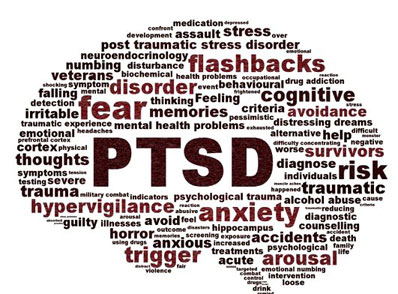- News Front Page
- Uncategorized
- Headline News
- Filipino Calgarian
- Business
- Pinoy Stories
- Community News
- Publisher's Note
- The Main Ingredient
- Views and Opinions
- Maikling Kwento
- Alberta News
- OFW – Month
- Travel News
- Health and Lifestyle
- Pinoy Toons
- Pinoy Spirit
- Entertainment
- The Philippine Lawyer
- Horoscope
- Greetings
- About Us
- Greetings From the Prime Minister
- Greetings from the President of the Philippines
- Greetings from the Premier of Alberta
- Greetings from the Mayor of Calgary
- Advertise With Us
- Disclaimer
- Subscription
Publisher's Note
- Publisher’s Note
 by CK
May is the month of flowers not just in the Philippines but also here in Calgary. A lot of my neighbors have done their spring cleaning and unfortunately I cannot cope up with them. I remember that during this time of the year my husband, Hank gets busier day by day. He takes care [...]
by CK
May is the month of flowers not just in the Philippines but also here in Calgary. A lot of my neighbors have done their spring cleaning and unfortunately I cannot cope up with them. I remember that during this time of the year my husband, Hank gets busier day by day. He takes care [...]
Visitors to Pinoytimes
Page added on July 20, 2016
Helping a family member who has PTSD

When someone has post-traumatic stress disorder (PTSD), it changes family life. The person with PTSD may act differently and get angry easily. He or she may not want to do things you used to enjoy together.
You may feel scared and frustrated about the changes you see in your loved one. You also may feel angry about what’s happening to your family, or wonder if things will ever go back to the way they were. These feelings and worries are common in people who have a family member with PTSD.
It is important to learn about PTSD so you can understand why it happened, how it is treated, and what you can do to help. But you also need to take care of yourself. Changes in family life are stressful, and taking care of yourself will make it easier to cope.
How can I help?
You may feel helpless, but there are many things you can do. Nobody expects you to have all the answers.
Here are ways you can help:
- Learn as much as you can about PTSD. Knowing how PTSD affects people may help you understand what your family member is going through. The more you know, the better you and your family can handle PTSD.
- Offer to go to doctor visits with your family member. You can help keep track of appointments, and you can be there for support.
- Tell your loved one you want to listen and that you also understand if he or she doesn’t feel like talking.
- Plan family activities together, like having dinner or going to a movie.
- Take a walk, go for a bike ride, or do some other physical activity together. Exercise is important for health and helps clear your mind.
- Encourage contact with family and close friends. A support system will help your family member get through difficult changes and stressful times.
Your family member may not want your help. If this happens, keep in mind that withdrawal can be a symptom of PTSD. A person who withdraws may not feel like talking, taking part in group activities, or being around other people. Give your loved one space, but tell him or her that you will always be ready to help.
How can I deal with anger or violent behaviour?
Your family member may feel angry about many things. Anger is a normal reaction to trauma, but it can hurt relationships and make it hard to think clearly. Anger also can be frightening.
If anger leads to violent behaviour or abuse, it’s dangerous. Go to a safe place and call for help right away. Make sure children are in a safe place as well.
It’s hard to talk to someone who is angry. One thing you can do is set up a time-out system. This helps you find a way to talk even while angry. Here’s one way to do this.
- Agree that either of you can call a time-out at any time.
- Agree that when someone calls a time-out, the discussion must stop right then.
- Decide on a signal you will use to call a time-out. The signal can be a word that you say or a hand signal.
- Agree to tell each other where you will be and what you will be doing during the time-out. Tell each other what time you will come back.
While you are taking a time-out, don’t focus on how angry you feel. Instead, think calmly about how you will talk things over and solve the problem.
After you come back:
- Take turns talking about solutions to the problem. Listen without interrupting.
- Use statements starting with “I,” such as “I think” or “I feel.” Using “you” statements can sound accusing.
- Be open to each other’s ideas. Don’t criticize each other.
- Focus on things you both think will work. It’s likely you will both have good ideas.
- Together, agree which solutions you will use.
How can I communicate better?
You and your family may have trouble talking about feelings, worries, and everyday problems. Here are some ways to communicate better:
- Be clear and to the point.
- Be positive. Blame and negative talk won’t help the situation.
- Be a good listener. Don’t argue or interrupt. Repeat what you hear to make sure you understand, and ask questions if you need to know more.
- Put your feelings into words. Your loved one may not know you are sad or frustrated unless you are clear about your feelings.
- Help your family member put feelings into words. Ask, “Are you feeling angry? Sad? Worried?”
- Ask how you can help.
- Don’t give advice unless you are asked.
If your family is having a lot of trouble talking things over, consider trying family therapy. Family therapy is a type of counselling that involves your whole family. A therapist helps you and your family communicate, maintain good relationships, and cope with tough emotions.
During therapy, each person can talk about how a problem is affecting the family. Family therapy can help family members understand and cope with PTSD.
Your health professional or a religious or social services organization can help you find a family therapist who specializes in PTSD.
How can I take care of myself?
Helping a person with PTSD can be hard on you. You may have your own feelings of fear and anger about the trauma. You may feel guilty because you wish your family member would just forget his or her problems and get on with life. You may feel confused or frustrated because your loved one has changed, and you may worry that your family life will never get back to normal.
All of this can drain you. It can affect your health and make it hard for you to help your loved one. If you’re not careful, you may get sick yourself, become depressed, or burn out and stop helping your loved one.
To help yourself, you need to take care of yourself and have other people help you.
Care for yourself
- Don’t feel guilty or feel that you have to know it all. Remind yourself that nobody has all the answers. It’s normal to feel helpless at times.
- Don’t feel bad if things change slowly. You cannot change anyone. People have to change themselves.
- Take care of your physical and mental health. If you feel yourself getting sick or often feel sad and hopeless, see your doctor.
- Don’t give up your outside life. Make time for activities and hobbies you enjoy. Continue to see your friends.
- Take time to be by yourself. Find a quiet place to gather your thoughts and “recharge.”
- Get regular exercise, even just 10 minutes at a time. Exercise is a healthy way to deal with stress.
- Eat healthy foods. When you are busy, it may seem easier to eat fast food than to prepare healthy meals. But healthy foods will give you more energy to carry you through the day.
- Remember the good things. It’s easy to get weighed down by worry and stress. But don’t forget to see and celebrate the good things that happen to you and your family.
Get help
During difficult times, it is important to have people in your life who you can depend on. These people are your support network. They can help you with everyday jobs, like taking a child to school, or by giving you love and understanding.
You may get support from:
- Family members.
- Friends, co-workers, and neighbours.
- Members of your religious or spiritual group.
- Support groups.
- Doctors and other health professionals.
For more information, see the topic Post-Traumatic Stress Disorder at My Health Alberta Website (www.myhealth.alberta.ca)
For 24/7 nurse advice and general health information call health Link at 811.
Source: www. myhealth.alberta.ca
Current as of February 10, 2015
Translated with permission from Healthwise Inc.© and is not intended to replace the advice of care you get from your provider or other healthcare professional. Always consult your health professional for medical diagnosis and treatment.
RELATED STORIES
LATEST HEADLINES
- Alberta implements provisional ban on temporary foreign workers
- April 2017 photo enforcement locations
- New support for Alberta’s women entrepreneurs
- Miss Universe France Iris Mittenaere Crowned MISS UNIVERSE 2016
- Growth of good jobs for Canadians the goal of the Global Skills Strategy
COMMUNITY NEWS
 WHAT IS THERE TO LOSE?
WHAT IS THERE TO LOSE? Changes to Regulations Will See Age Increased for Dependent Child
Changes to Regulations Will See Age Increased for Dependent Child ABS-CBN Files $5M Lawsuit Against Casinillo and Gonzalez For Selling Pirated Set-Top Boxes in Edmonton, Canada
ABS-CBN Files $5M Lawsuit Against Casinillo and Gonzalez For Selling Pirated Set-Top Boxes in Edmonton, Canada Forever in our Hearts
Forever in our HeartsPINOY STORIES
 More Pinoys enjoys Kapamilya Shows via ABS-CBN TV Plus
More Pinoys enjoys Kapamilya Shows via ABS-CBN TV Plus- Holy Week practices in the Philippines
PINOY SPIRIT
HAVE YOUR SAY
Lorem ipsum dolor sit amet, consectetur adipiscing elit, dolor sit ipsum.PROMOTIONAL BLOCK
Lorem ipsum dolor sit amet, consectetur adipiscing elit, dolor sit ipsum.TRAVEL NEWS
PINOY TOONS
Tags
Archives















